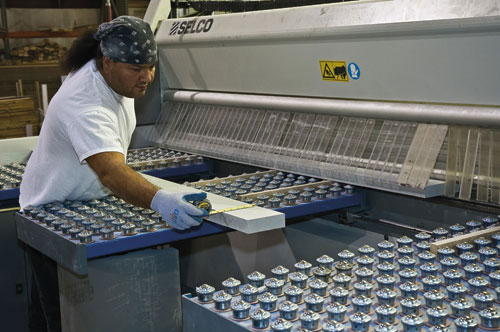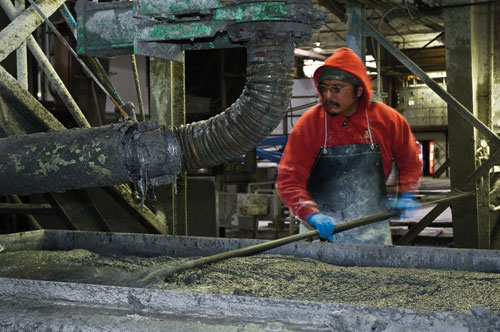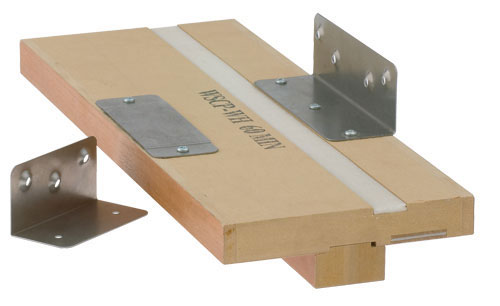 Warm Springs Composite Products, a tribal enterprise that manufactures fire-rated door components, finds success with fire code certification.
Warm Springs Composite Products, a tribal enterprise that manufactures fire-rated door components, finds success with fire code certification.
 |
Warm Springs Composite Products, which makes fire-rated door components, also helps foreign suppliers navigate building and fire code product standards. |
 |
 |
This fire-rated door frame is embedded with intumescent material, which expands when heated, sealing the opening to contain fire. // Photos courtesy Warm Springs Composite Products |
Ten years ago, Warm Springs Composite Products, a tribal enterprise that manufactures fire-rated door components, had only 10 customers, all in the United States. Today the company boasts 80 clients in about a dozen countries, with sales in the Middle East accounting for almost 30% of company revenues.
How does a rural Oregon tribe, the Confederated Tribes of Warm Springs, carve out a niche in the Middle East and beyond? By helping foreign suppliers navigate the complexities of building and fire code product standards, says Duane Darnell, CEO of Warm Springs Composite Products. “Certification is the driver of our business,” he says.
Warm Springs Composite manufactures a product called Tectonite — a combination of sedimentary rock, fiberglass and cellulose — from which the company also makes stiles and rails for fire-rated doors, a door core material. It also builds a patented wood door frame. The company, which employs 42 people, maintains an office in Dubai and has supplied components used in high-profile skyscrapers such as the Birj Khalifa in Dubai — the tallest building in the world — and the World Trade Center in Bahrain.
The trend in many parts of the world is to comply with U.S. or British fire code ratings, says Darnell. Warm Springs Composite spends about $40,000 annually to meet these certification requirements and also helps overseas suppliers construct doors that retain those certifications. The latter service gives Warm Springs Composite a competitive edge.
“The reason this works isn’t because we’re the biggest or the most astute,” says Darnell. “It’s the number of certifications our products carry and our relationship with certifying agencies.”
Exports have increased by about 50% since 2010; that year, overseas sales accounted for about $2 million of the company’s $6 million in revenue. In the United States, expansion is also on the agenda. The company will begin construction on a second 50,000-square-foot manufacturing facility this summer, to be located in the Warm Springs Business Park.
Darnell, who says Portland’s U.S. Department of Commerce Export Assistance Center has been instrumental in helping the company locate international partners, wants to be ready for the next big thing. “India,” he says, “is a huge market waiting to happen.”


